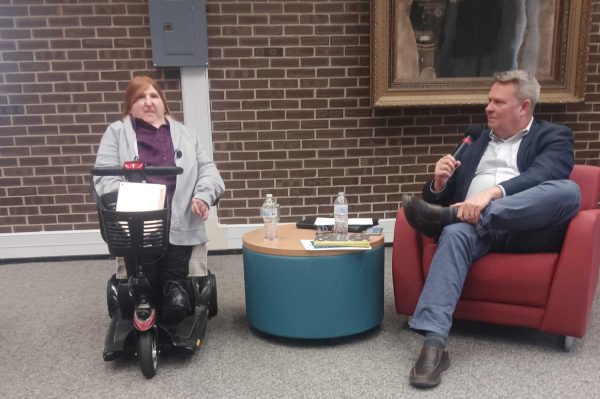Director of ‘Eastern Promises’ makes film exceptional due to unique direction and style
September 25, 2007
7 / 10
In 2005, David Cronenburg directed one of the best films of that year called “A History of Violence,” a story about a seemingly ordinary man confronting the brutality that enters his life.
Cronenburg’s latest film, “Eastern Promises,” is sure to get compared to his last one; they both touch on similar themes and they both star Viggo Mortensen, best known for his role in “The Lord of the Rings” trilogy.
Naomi Watts co-stars as Anna, a British midwife working in a London hospital. When a Russian teenage girl comes into her ward and dies while giving birth, Anna takes it upon herself to seek out the girl’s identity by translating her diary.
On her search, she goes to the help of an elderly Eastern European restaurant owner who agrees to translate for her. But Anna slowly discovers that underneath his warm and grandfatherly exterior, he is linked to a brutal organized crime syndicate, and the diary contains some pretty unflattering secrets about him and his business.
Mortensen plays Nikolai, a Russian-born crime soldier. His role in the syndicate is an underling to his boss’s hotheaded son, played by Vincent Cassel.
The hotheaded-son-of-a-mob-boss role is something that’s been around in gangster movies as recent as “Road to Perdition,” and as early as “The Godfather,” so its inclusion here slightly underscores the rest of the film’s scope.
As Anna and Nikolai meet throughout the film over the matter of the dead girl’s diary and her child, they form an unusual bond. The film is driven primarily by its two lead actors, and Watts and Mortensen are up to the task.
They have chemistry not in the way of a romantic comedy couple. Nikolai plays his emotions like a master poker player, always suggesting something more without ever saying what it is.
Anna is clearly motivated to keep the baby safe, which shows her sentimentality and tenderness, but she is also capable of strength in scenes where she stands up to Nikolai.
Of course, you can’t have a mob movie without scenes of graphic violence, which Cronenburg showed a particular gift for two years ago. However, unlike most gangster films, “Eastern Promises” trades gun battles and head shots for knife fights and slit throats.
This gives a particular scene in a bathhouse added tension and brutality. Cronenburg doesn’t glorify or dumb down the violence in any way, making the viewer wince with every slash and cut.
I think one thing which may turn viewers off is the lack of a typical mafia story complete with wall-to-wall shoot-outs. Instead, this is a thoughtful and patient story of an outsider confronting the violent men. It doesn’t pace itself like an action movie, but as a psychological drama.
While shadows and drained-out colors of London in the winter aided to the film’s overall tone, I still felt as though I was being kept at arm’s length during certain parts when I wanted to be drawn in. I actually thought that it was set somewhere in Russia as opposed to London.
Still, “Eastern Promises” is an exceptional film because of David Cronenburg’s direction and style. He knows how to craft a film that can shock with brutality but keep its focus on the characters and on the story, which may sound less exciting on paper, but overall is more satisfying to view.










